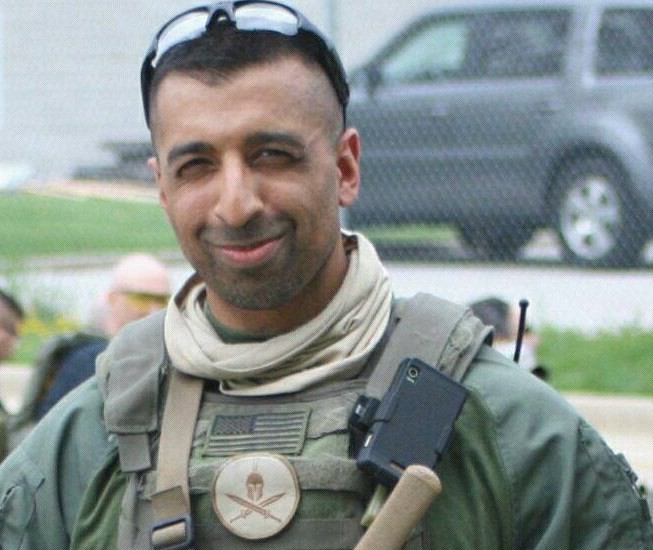Firearms-Combatives Program (FCP)
|
|
Firearms-Combatives Training from Instructors with Real-World Experience
Firearms training is not a new facet in martial arts training. Noted historian Donn F. Draeger writes in his book "Classical Bujutsu" that warrior families began to adopt the use of firearms in 1521, and fighting methods were developed incorporating their use. In 1575, a decisive victory resulted from their use, and hojutsu, "fire art," or the art of the firearm, began codification. The Midwest Academy staff views firearms training a natural component of the systems being practiced daily at the Academy. Our tactics, techniques, and strategies are consistent across the empty-hand, edged-weapon, impact-weapon, and firearms platforms.
|

|
Firearms-Combatives Program (FCP)
The Midwest Academy provides firearms training through our Firearms-Combatives Program (FCP). The Academy's FCP classes and courses are a unique kinesiology-based firearms training program that includes, among other components, visual acuity and proprioception sciences, perception and decision-making sciences, and critical-incident mindset development sciences as taught through the "art of gunfighting." Through this approach, experienced martial artists can learn how to apply their knowledge of body science to a ballistic tool, and new or experienced shooters can learn the efficiency of biomechanics that is associated with martial arts. FCP classes, however, require neither experience in martial arts nor an extensive background in firearms. The Academy's FCP program is valuable for novice and expert shooters alike.
|
While the curriculum used in the FCP classes and courses has its origin, refinement, and vetting in military and law enforcement groups, the Academy's teaching focus is civilian-centric. The FCP curriculum is a synergy of several Tier 1 "gunfighting" systems, including CSAT (Paul Howe), TAPS (Pat McNamara), and Haley Strategic (Travis Haley), in which the FCP Program Lead Instructor, David Hakim, has numerous training and instructor certifications under those contemporary Tier 1 instructors. He also brings his own military and law enforcement professional experiences to the FCP knowledge base. We believe that the Academy's real-world experience in ballistic-oriented combatives, deep knowledge of proper biomechanics, and the superiority of the systems combined in the FCP program makes this system second to none for anyone interested in learning or improving shooting skills. Furthermore, just like the other martial arts taught at the Academy, FCP lessons are applicable to every aspect of one's personal growth, development, and quality of life.
FCP Course Modules (Monthly)
| Module I — FCP Introduction to Firearms Fundaments covers safe operation, practice, and deployment of the pistol or carbine, optimizing weapon and ammunition selection/purchase, and the fundamentals of shooting from both the science of kinesiology and physics. There is no prerequisite for this course. |
Module II — FCP Theory of Dry Training and Drills covers the sciences related to how humans learn, master, and apply physical skills and make decisions under uncertain conditions. Dry drills are used to teach students the most efficient, reliable, and effective means to deploy a weapon system, move with a weapon system, and correctly manipulate a weapon system.* These skills developed through this form of practice are designed to be applied in everyday environments, but can be practiced on a flat range as well.* ** |
|
| Module III — FCP Theory of Firearm-Combatives covers close contact firearms-combatives skills, including weapon deployment, weapon retention, effective weapon ready postures, optimal reaction to "bad guy" weapon presentations, and the effect of body-alarm response on physical skills.* |
Module IV — FCP Theory of CQB covers the use of angles and movement to increase reaction and decision-making time in the urban environment (adjacent to or inside buildings, homes, hallways, stairways, rooms, in crowds, etc.).*** |
|
| Module V - Force on Force training that allows students to combine and apply all the previous skills learned in the previous modules. (Requires completion of Modules I - IV) |
|
|
* Pistol and carbine are separate courses for this module.** Module requires students to have a valid CCW/CCL.*** Module requires students to have completed Module II and III and have a valid CCW/CCL.
FCP Classes (Weekly)
The Academy holds weekly FCP classes. Students must have completed FCP Modules I and II at a minimum and have a valid CCW/CCL prior to attending the FCP weekly classes. The Academy's weekly FCP classes develop the FCP materials taught in all the modules at a more detailed level, with the emphasis shifting from "skill exposure" to "skill mastery."
|
|
|
|